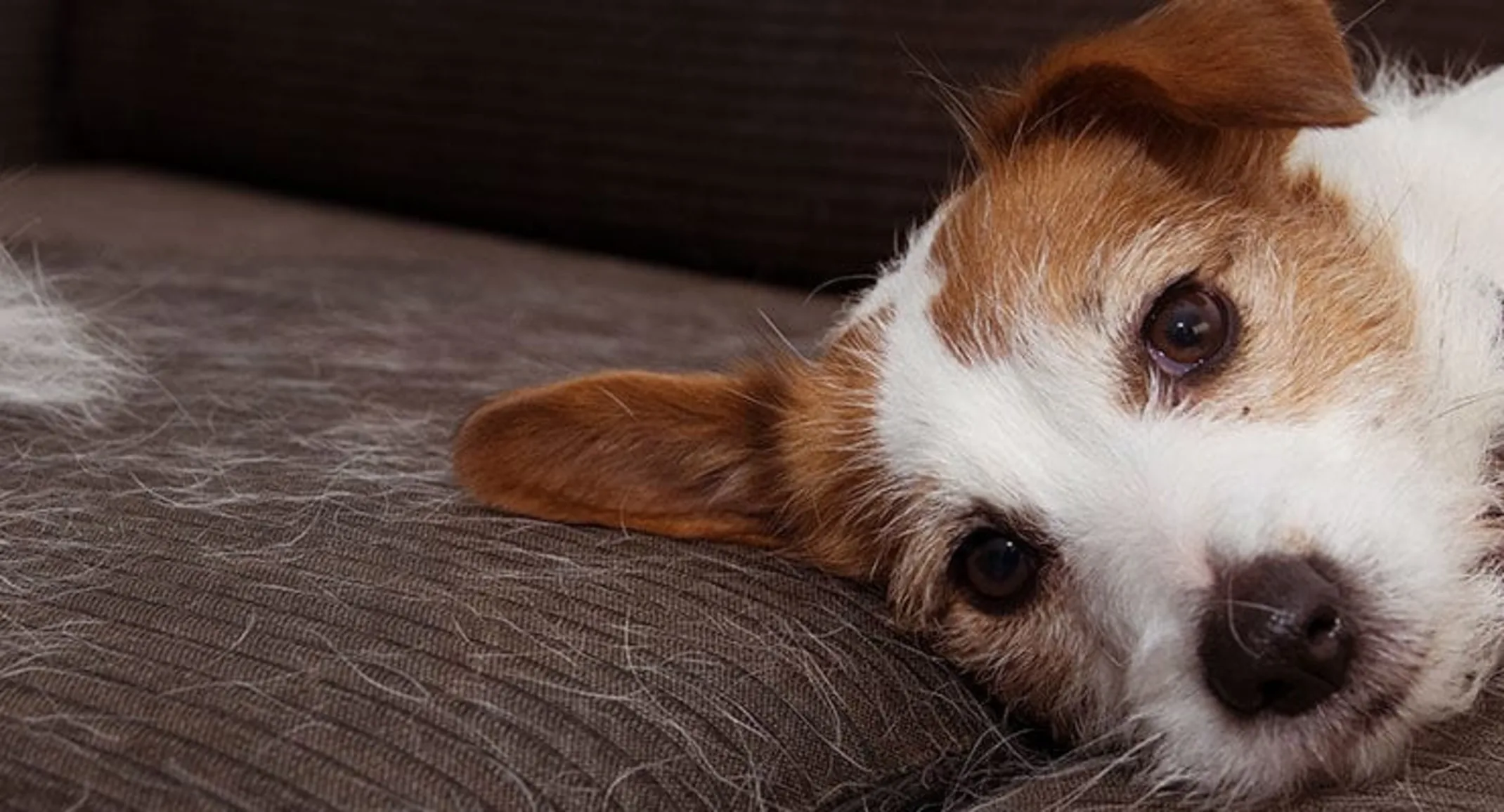Why is My Dog Losing Hair?
Dogs

Have you noticed your dog losing hair lately? Although hair loss in dogs isn’t always a sign of something serious, it can be concerning in some circumstances. It’s important to figure out what might be causing your dog to lose their hair so you can help them get back to normal soon. Continue reading to find out some of the common causes of hair loss in dogs. If you still have questions, call Evergreen Veterinary Clinic in San Jose at (408) 238-0690.
Causes for Shedding
Normal Shedding
The most common cause of hair loss in dogs is simply normal shedding. Your dog may shed more during the hotter times of the year when their body is naturally responding to the increased temperature. However, some breeds also shed almost nonstop all the time.
To help with shedding issues, consider brushing your dog on a weekly or even daily basis. You should also keep up with their regular bathing and grooming, including trimming their fur as needed, to ensure their hair loss is as minimal as possible.
Food Allergy
Dogs who suffer from food allergies also suffer from poor skin and coat condition, and this can include hair loss. The more severe your dog’s food allergy, the more likely it is that they may lose their hair from it. However, even a mild food allergy can cause some thinning of your dog’s coat.
Food allergies are easy to treat. All you need to do is switch your dog to a higher-quality food with better ingredients and avoid those that they are allergic to. If your dog is currently on a chicken diet, for example, you might try a different protein to see if the chicken is the cause of the allergy.
Fleas
Some dogs have a more severe reaction to fleas than others, and some are even allergic to the saliva produced by fleas. If your dog has a severe flea infestation or a bad reaction to fleas, then they may start to lose their hair. Hair loss from fleas may be patchy across a dog’s body.
You will need to have your dog treated for severe flea infestations, usually by way of a flea bath and prescription strength flea medication. From there, you’ll need to keep up with monthly flea treatments if possible to prevent the problem from reoccurring in the future.
Nervous Chewing
Dogs who have a nervous chewing habit may be prone to losing their hair, especially in the places where they obsessively lick or chew. The more your dog chews or licks a certain part of their body, the more likely they will be to develop a bald patch at that location.
Nervous chewing often happens as a result of separation anxiety. However, it can also happen from boredom, especially if your dog isn’t stimulated enough or exercised often enough throughout the day. Talk to your vet for assistance if you think your dog needs to be on an anti-anxiety medication or an antidepressant to help.
Cushing’s Disease
Cushing’s disease causes too much cortisol to be produced by the dog’s body. The overproduction of this hormone can cause dogs to grow a pot belly and can also lead to excessive thirst, excessive urination, and excessive panting. There may be other symptoms associated with this problem as well, including hair loss.
Only your veterinarian can tell you for sure whether or not your dog has Cushing’s disease. If your dog is diagnosed with this condition, they may need surgery to correct the problem. Some dogs may respond well to medication as a treatment for Cushing’s disease as well.
Hypothyroidism
Hypothyroidism is a condition in which the thyroid doesn’t function the way it should. As a result, the body doesn’t have enough hormones that it needs, and different parts of your dog’s body are affected. Hypothyroidism can cause hair loss.
Some of the other symptoms associated with this condition include changes in appetite and weight without any other explanation. Certain breeds are more predisposed to hypothyroidism than others, including boxers, cocker spaniels, and golden retrievers. It usually happens in adult dogs rather than in puppies.
With the help of this information, you may be able to figure out what to discuss with your vet. If your dog’s hair less is severe or very sudden—and if you’re sure it’s not just normal shedding—then it might be time to schedule a vet visit.
By working with a trusted vet, you can figure out the underlying cause of the hair loss and determine the best course of action for treatment moving forward. Your vet will help you make sure your dog’s hair loss problem is under control and get her back to normal soon. Call us today at (408) 238-0690.
